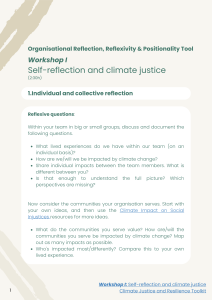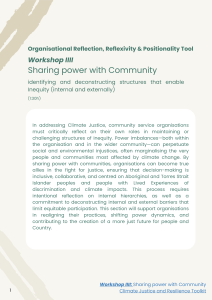1. Terminologies
Reflection vs. reflexivity
Reflection is simply thinking about an issue, whereas reflexive questions are supposed to result in interrogating organisational collusion with oppressive systems and producing strategies for mitigating or addressing these challenges.
“Reflective practice is a process by which you: pause and think about your practice; consciously analyse your decision making; and draw on theory to relate it to what you did (or didn’t do) in practice. Reflexivity is finding strategies to question our own attitudes, thought processes, values, assumptions, prejudices and habitual actions, to strive to understand our complex roles in relation to others. To be reflexive is to recognise we are active in shaping our surroundings, and begin critically to take circumstances and relationships into consideration rather than merely reacting to them, and help review and revise ethical ways of being and relating in our world.”
(Source: Learning for Sustainability)
2. Workshops
To undertake this team workshop, set a time and date for your team to meet and provide your team members with the listed pre-readings and video introductions.
Use papers and pens or digital options to collate and document your collective discussions and responses.
Each workshop part contains an introduction video, reflective questions, reflexivity exercises, and discussion points.
The workshop consists of five parts. It can be done in one bigger session or five individual sessions.
Workshop I. Self-reflection and climate justice (2:30h)
Introduction video: The complex dimensions of justice in sustainability
Workshop II: Intersectionality (1:30h)
Introduction video: What is intersectionality, Kimberle Crenshaw
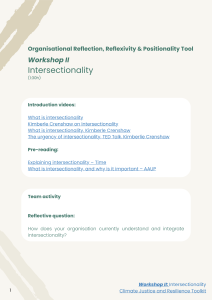
Workshop III. Positionality (2:00h)
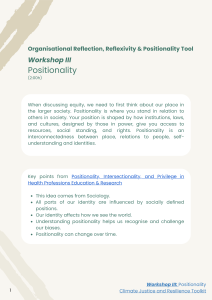
Workshop IIII: Sharing power with community (1:30h)
Identifying and deconstructing structures that enable inequity (internal and external)
Introduction Video: Power, privilege and oppression
Intersectionality Wheel
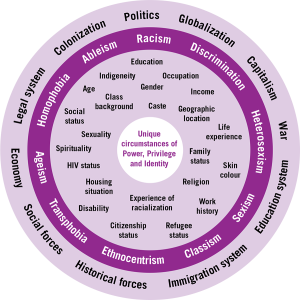
(Source: ADP Health)
Read more
Intersectionality-Based Policy Analysis of How Racism is Framed in Medical Education Policies Guiding Aboriginal Health Curriculum
Intersectionality-Based Policy Analysis Framework
Toolkit to incorporate intersectionality into local policies
Using intersectionality to understand structural inequality in Scotland: evidence synthesis
